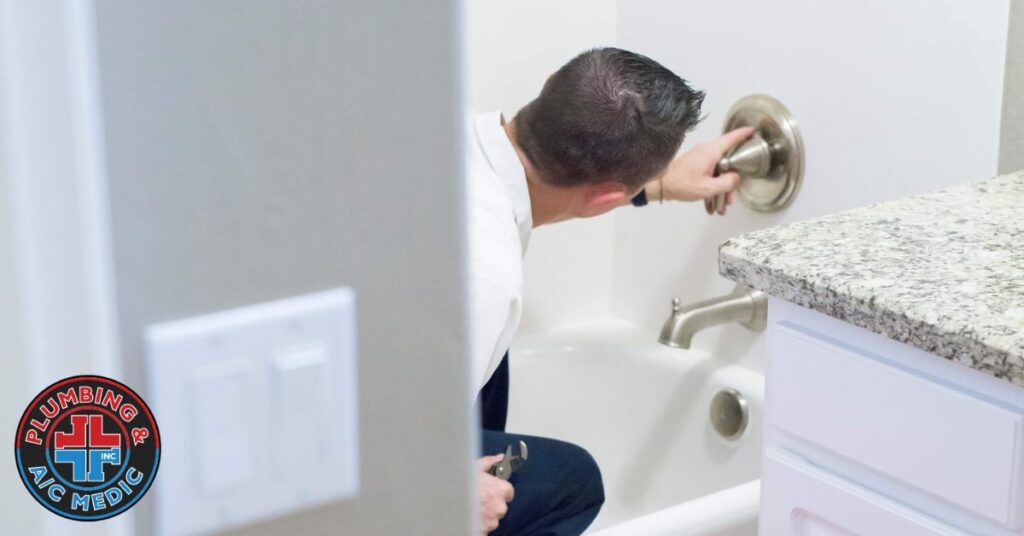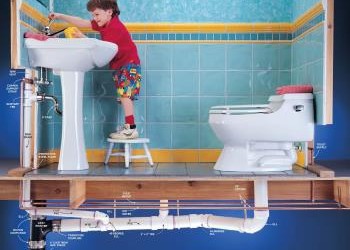First-Time Home Buyers: Tips on How to Manage Bathroom Plumbing
First-Time Home Buyers: Tips on How to Manage Bathroom Plumbing
Blog Article
Are you currently searching for advice on General Plumbing Tips for New Homeowners?

For brand-new house owners, understanding and maintaining washroom plumbing can conserve both time and money by preventing pricey issues down the line. Below are some necessary restroom pipes ideas to help you maintain whatever running smoothly.
Plan For Cold Weather
Secure your pipes from cold throughout cold weather by shielding pipelines in unheated locations like basements, attic rooms, and garages. During severe cold, let cold water drip from taps offered by revealed pipelines to help protect against freezing.
Set Up Regular Upkeep
Consider organizing annual examinations with a certified plumber. They can identify problems that you may miss out on, such as covert leakages or wear and tear on pipes and components. Regular maintenance assists expand the life of your plumbing system and can stop emergency situations.
Familiarize Yourself with the Key Shut-Off Valve
Understanding where the main water shut-off valve lies in your house is important. This permits you to quickly switch off the water supply in case of significant leakages or throughout plumbing emergencies, stopping comprehensive water damages.
Regularly Examine for Leakages
Little leakages can lead to big issues. Consistently check under sinks, around toilets, and near plumbing fixtures for any type of indications of leakages. Seek dampness, small drips, or rust. Catching and repairing leaks early can avoid much more significant damages and conserve water.
Keep Your Hot Water Heater
Guarantee your hot water heater is readied to an ideal temperature (generally around 120 degrees Fahrenheit) to prevent scalding and reduce energy usage. Flush the tank yearly to remove sediment buildup, which can reduce the efficiency and lifespan of your heating system.
Upgrade Your Fixtures
If your home has older components, take into consideration updating to a lot more effective designs. Modern bathrooms, showerheads, and faucets are developed to use less water while providing excellent stress, which can dramatically decrease your water bill and environmental impact.
Beware with Do It Yourself Plumbing Repairs
While it's alluring to manage all home fixings by yourself, be cautious with plumbing. Some concerns could need expert know-how, specifically if they entail major water lines or drain repair work. Hiring an expert can in some cases be much more economical than DIY, specifically if it avoids further damage.
Do Not Neglect Slow Drains
If your sink or bathtub is draining pipes slowly, it's frequently a sign of an obstruction creating. Resolving this early can protect against a full blockage. Make use of a bettor or a plumbing's snake to clear out particles. Avoid making use of chemical drain cleansers as they can damage your pipes with time.
Know What Not to Flush
Bathrooms are not garbage disposals. Prevent purging anything besides toilet paper and human waste. Products like wipes, feminine health products, and cotton bud ought to be disposed of in the trash to stop blockages and sewer backups.
Mount Strainers in Drains
Location strainers in your sink and bathtub drains pipes to capture hair and other particles prior to they enter your plumbing system. Cleansing the filters frequently will help stop build-up and keep water moving freely.
Final thought
Recognizing and preserving your home's washroom plumbing can stop several common problems. By adhering to these vital tips, you can ensure your shower room continues to be functional and effective, conserving you time and money in the long run.
5 Plumbing Tips for First-Time Homeowners
Know How to Shut Off the Water
In most homes, the water can be shut off at two places: at the appliance or fixture itself, and for the whole house. For instance, look under your sink or behind the toilet. See those little knobs that connect with the pipes? Those are the shut off valves for those fixtures. Simply turn them until the water is off. The main shut off valve (which controls water throughout your entire home) will be outside, where the water feeds into the structure. You might need a dedicated tool, such as a water shut-off key, to shut off the water at the main.
Build an Emergency Plumbing Kit
Everyone knows how important it is to have a high-quality plunger around the house. But there are other things that can help you out when issues arise with the pipes. Building an emergency plumbing kit to solve issues on your own is part of any list of basic plumbing tips. Consider adding these things to create a basic plumbing kit:
Adjustable wrench Tongue-and-groove pliers Screwdrivers Plumber’s tape Pipe sealant Duct tape Set of hex keys Clip light for working under cabinets Auger and hand snake Do a Little Research
Many small leaks can be handled by replacing a small part of the piping system, tightening part of a faucet, or even changing out an aerator. Take the time to browse how-to articles for common plumbing problems, such as a running toilet or slow-draining sink. You might be surprised to find how easy it can be to do simple things yourself, like replace a valve in the back of the toilet.
Keep it Simple With No Chemicals
If you have a clog, you might be tempted by the promises of liquid drain cleaner. While this might work at first, it actually causes more damage deep in the pipes, eventually creating even more problems down the road.
Instead, try using baking soda and vinegar to create a strong fizzing effect that can help break up clogs and clear gunk from drains. Follow it with boiling water to clean the pipes even more thoroughly.
Take Care of Your Garbage Disposal
Be cautious about what you put down the disposal. Avoid pouring in fats, oils, and grease, as these are a surefire way to get a clog. Beware of certain foods too, such as celery or bones, as they can lodge in the works. Always run the disposal with water flowing.
https://modernize.com/homeowner-resources/other/10-plumbing-tips-for-first-time-homeowners

Give Me A Quote! Report this page